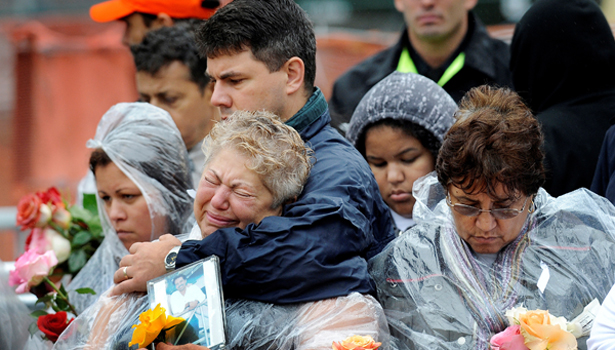The U.S. government has reached a significant plea deal with three men accused of mounting the 9/11 terrorist attacks.
Khalid Sheikh Mohammed, Walid Bin ‘Attash, and Mustafa al-Hawsawi, who have been detained at Guantanamo Bay, Cuba, for years, have agreed to plead guilty to all charges, including the murder of 2,976 people.
This plea agreement, which removes the possibility of the death penalty, is the result of 27 months of negotiations and years of legal delays.
Key Details of the Plea Deal
According to the Department of Defense, this plea deal is aimed at avoiding a lengthy and complex trial process. By agreeing to plead guilty, the defendants will bypass the death penalty, which had been a major point of contention.
The plea hearing could occur as early as next week, and sentencing is anticipated in the summer of 2025. This deal reflects a compromise intended to resolve the case after years of stalled legal proceedings and debates over evidence admissibility.
The defendants will face a military court where they will enter guilty pleas. A panel of military officers will determine their sentences, which will not include the death penalty.
The plea deal also includes provisions for the defendants to respond to written questions from victims’ families about their roles in the attacks. This element is meant to provide some level of accountability and closure for those affected by the tragedy.
Reactions from Victims’ Families

The plea deal has sparked significant controversy and criticism from the families of the 9/11 victims. Brett Eagleson, president of 9/11 Justice, expressed deep concern about the lack of transparency surrounding the deal.
He emphasized the need for more information about Saudi Arabia’s potential involvement in the 9/11 attacks. Eagleson’s organization represents survivors and relatives of victims, who feel that this plea deal might mask critical details about the attacks.
Terry Strada, national chair of 9/11 Families United, described the deal as a “gut-punch” and expressed frustration with the timing. Strada, whose husband was a victim, criticized the deal for overshadowing recent developments in their litigation against Saudi Arabia.
She voiced concerns that the plea deal could detract from the fight to hold the kingdom accountable, which has been a major focus for families seeking justice.
Legal and Procedural Challenges
The plea agreement comes after years of legal and procedural challenges. Khalid Sheikh Mohammed often considered the mastermind behind the 9/11 attacks, and his co-defendants faced numerous delays.
These delays were partly due to debates over the use of enhanced interrogation techniques, which some critics argue amounted to torture. The legal battle over whether evidence obtained through these methods could be used in court added complexity to the case.
The trial was initially scheduled to begin in January 2021, but delays caused by the pandemic and the resignation of judges pushed the date further.
The plea deal represents an effort to move past these hurdles and bring some resolution to a case that has lingered for more than two decades.
Political and Expert Perspectives
Political figures and national security experts have reacted differently to the plea deal. Peter Bergen, a national security analyst, described it as the “least bad deal” given the circumstances.
Bergen noted that the deal avoids a potentially protracted trial and acknowledges the practical difficulties of proceeding with the case after so many years.
The Biden administration faced criticism from Republicans who opposed the plea agreement. Senate Minority Leader Mitch McConnell condemned the deal as a failure to uphold the government’s duty to seek justice and protect the nation.
Critics argue that negotiating with the defendants after their capture undermines the pursuit of justice.
Future Proceedings and Ongoing Debates
While the plea deal resolves some aspects of the case, it also raises ongoing concerns about justice and transparency. The sentencing hearings will allow victims’ families to present impact statements, which the military panel will consider.
This aspect of the process aims to provide a forum for affected individuals to express the emotional and personal impact of the attacks.
The plea deal also includes a provision for the defendants to answer questions from victims’ families, which is intended to offer some degree of closure. However, families continue to push for more comprehensive answers about the 9/11 attacks and any potential connections to other entities, including Saudi Arabia.
As the legal process moves forward, the focus will remain on balancing the need for justice with the practicalities of a complex case.
The plea deal marks a crucial development in the aftermath of the 9/11 attacks, but the quest for full accountability and understanding of the events continues.
This resolution represents a significant, albeit controversial, step in addressing the aftermath of one of the most devastating attacks on U.S. soil. The legal and political ramifications will likely continue to be a topic of discussion as the case progresses and families seek further justice.





